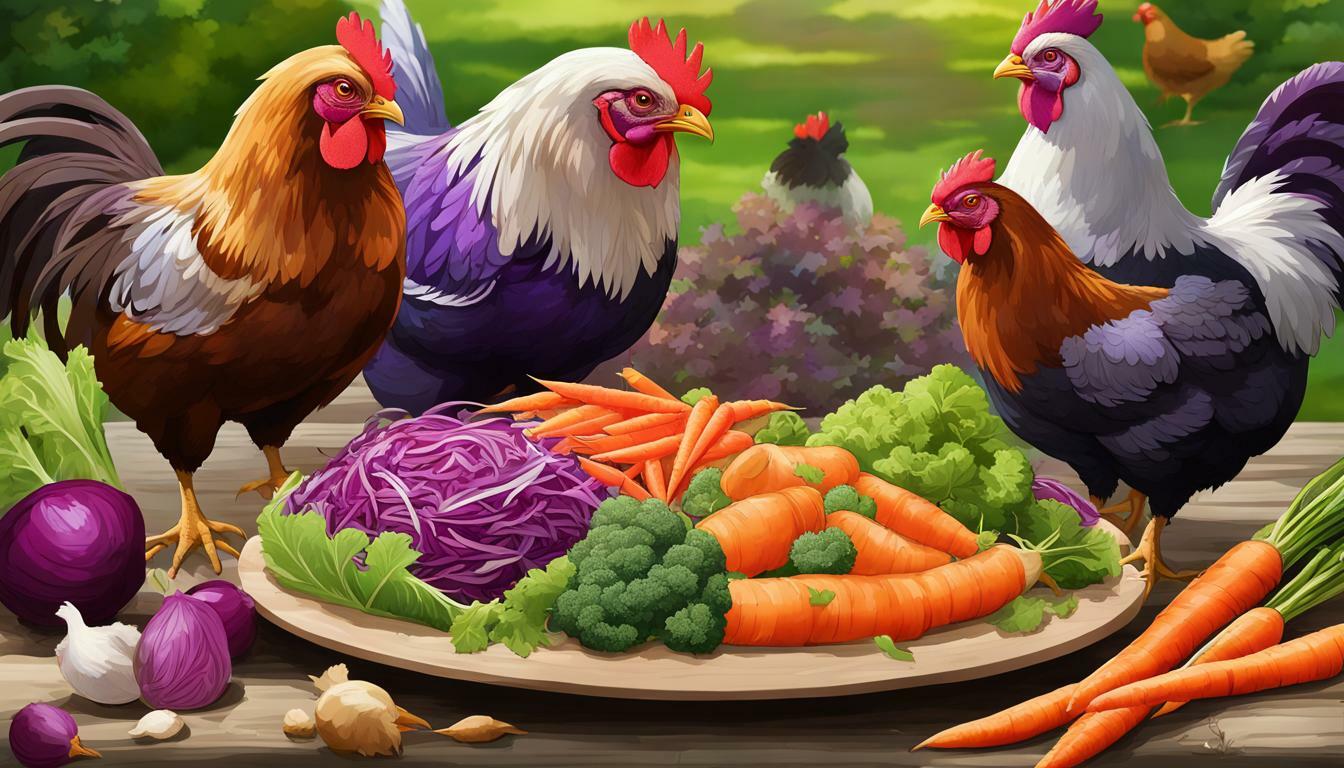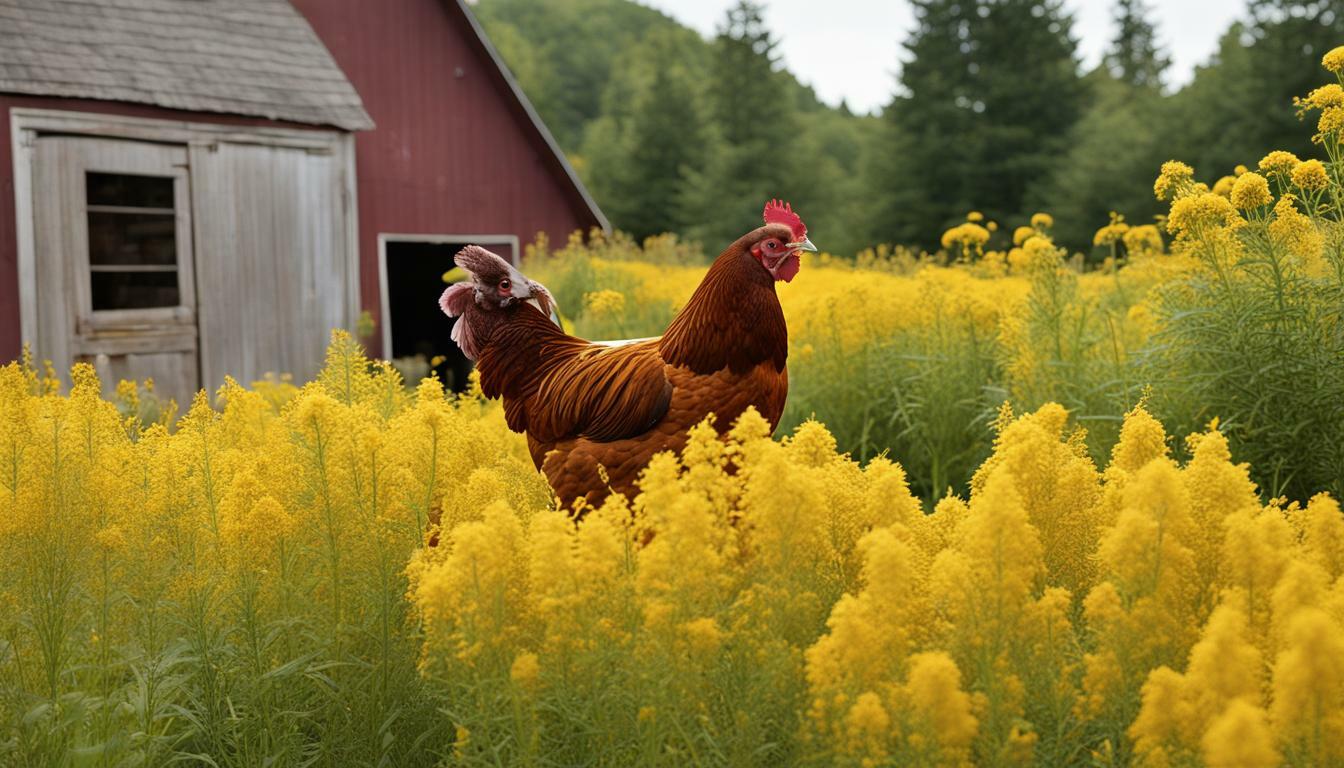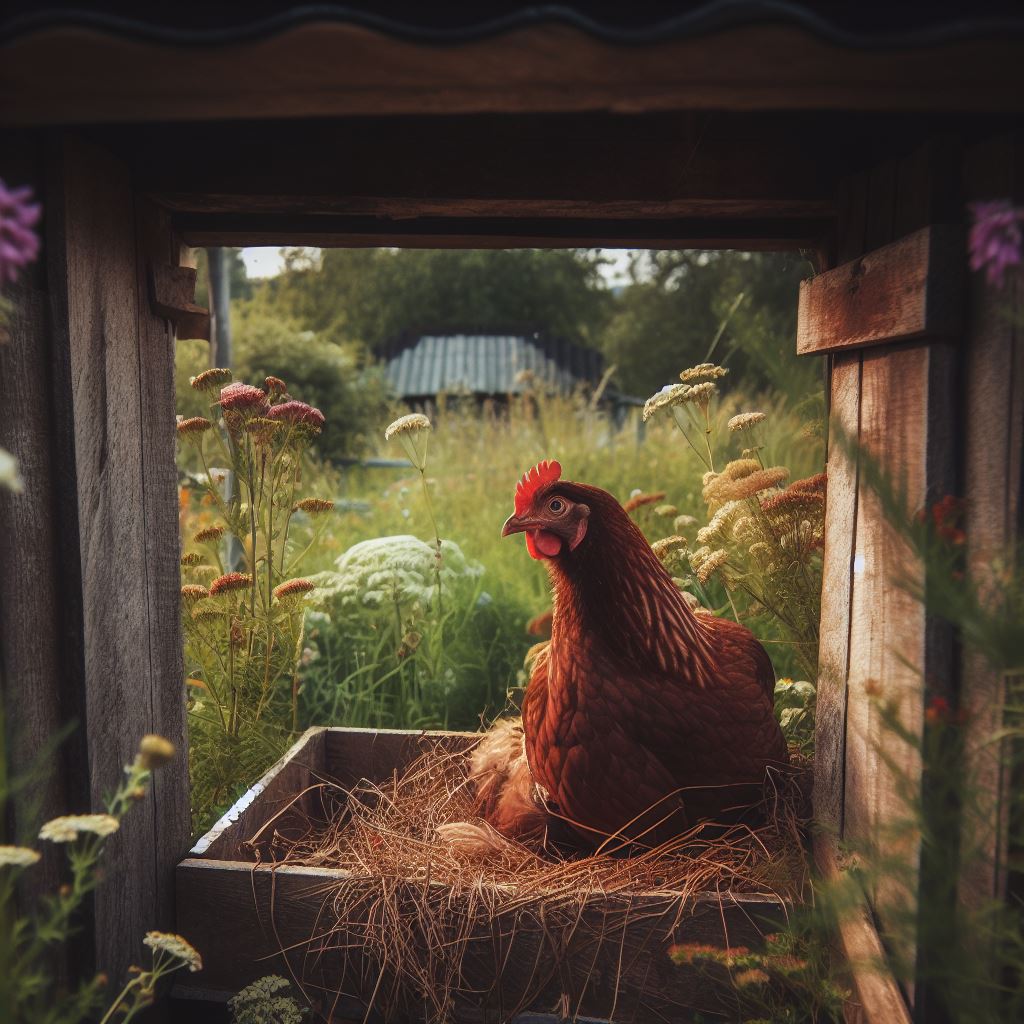Can Chickens Eat Red Cabbage? Feeding Tips And Nutritionals

Table of content:
Chickens can absolutely eat red cabbage, along with other types of cabbage and leafy greens. Cabbage provides many health benefits and key nutrients that chickens need in their diet. Let’s take a closer look at cabbage and how to feed it to chickens safely.
Can Chickens Eat Cabbage?
Yes, chickens can eat cabbage raw or cooked. All types of cabbage, including green, red, purple, napa, bok choy, brussels sprouts, broccoli, and cauliflower, are safe and healthy for chickens to eat.
Cabbage is an excellent source of vitamins, minerals, antioxidants, and fiber. It provides nutrients like vitamin C, vitamin K, folate, potassium, manganese, and magnesium. The fiber aids digestion and gut health.
Cabbage is a leafy green vegetable that is a cruciferous veggie along with kale, collard greens, and broccoli. Cruciferous veggies contain glucosinolates that break down into compounds that may help prevent cancer.
What Vegetables Can Chickens Eat?
Chickens can eat a wide variety of vegetables. The healthiest and safest vegetables for chickens include:
- Leafy greens – kale, spinach, lettuce, cabbage, bok choy, collard greens, etc.
- Cruciferous veggies – broccoli, cauliflower, brussels sprouts, etc.
- Root vegetables – carrots, sweet potatoes, beets, turnips, etc.
- Squashes – zucchini, pumpkin, butternut, etc.
- Alliums – onions, shallots, leeks, chives, etc.
- Nightshades – tomatoes, peppers, eggplant, etc.
- Other veggies – cucumbers, peas, celery, radishes, asparagus, etc.
Vegetables provide important vitamins, minerals, antioxidants, phytonutrients, and fiber. Offer chickens a variety of chopped veggies 2-3 times a week. Avoid potatoes and rhubarb.
Are Cabbage Leaves Good for Chickens?
Yes, all types of cabbage leaves are great for chickens. Cabbage leaves provide:
- Moisture – The high water content helps hydrate chickens.
- Nutrition – Packed with vitamins, minerals and antioxidants. Excellent source of vitamin C and K.
- Fiber – Supports digestion and gut health.
- Boredom buster – Keeps chickens busy pecking at and shredding the leaves.
Hang whole cabbage heads or large leaves in the run for enrichment. Chop leaves into bite-sized pieces and add to feed. Offer a cabbage leaf treat 1-2 times a week. Remove wilted leaves promptly.
What Human Food Can Chickens Eat?
Chicken can safely eat many foods that humans eat. The best human foods for chickens include:
- Vegetables – Leafy greens, cabbage, root veggies, squash, peas, cucumbers, etc.
- Fruits – Berries, melons, apples, citrus fruits, etc.
- Grains – Cooked rice, pasta, oats, barley.
- Dairy – Plain yogurt, cheese, milk.
- Proteins – Cooked eggs, meat, fish. Avoid raw eggs.
- Herbs – parsley, basil, oregano, dill, etc.
Avoid salty, spicy, greasy, or sugary human foods. Onions and garlic can cause anemia in large amounts. Feed human foods in moderation as treats. Always check for safety first.
What Are Chickens’ Favorite Vegetables?
Chickens love leafy greens like kale, lettuce, spinach, and cabbage. Their other favorite veggies include:
- Broccoli and cauliflower – Chickens love these nutrient-packed cruciferous veggies.
- Carrots – A great source of vitamin A. Can hang whole for pecking.
- Sweet potatoes and squash – For vitamins, fiber and natural sugars.
- Tomatoes – Provide vitamin C and lycopene. Cut in half to avoid choking.
- Peas and corn – For extra protein, carbs and vitamins. Can hang heads for pecking.
- Beets and turnips – Chickens enjoy the tops and roots of these veggies.
Offer a mix of top favorites 2-3 times a week. Observe preferences of individual chickens. Make sure vegetables comprise no more than 10-15% of total diet.
Is Red Cabbage Good for Chickens?
Red cabbage is highly beneficial for chickens due to its dense nutrient content and health benefits. It provides:
- Vitamin C – Boosts immunity and combats stress.
- Fiber – Promotes digestion and gut health.
- Vitamin K – Essential for blood clotting.
- Anthocyanins – These antioxidants support heart health.
- Flavonoids – May reduce inflammation.
- Antioxidants – Help neutralize cell damage by free radicals.
In addition to vitamins, minerals and antioxidants, red cabbage adds variety to the diet. Its bright color attracts chickens. Chop the raw cabbage heads into chick-sized pieces before feeding.
Can Chickens Eat Cabbage Raw?
Chickens can safely eat raw cabbage. Feeding cabbage raw provides the most nutrition and allows chickens to enjoy the natural textures and flavors.
To feed raw:
- Chop or shred into small, bite-sized pieces.
- Place cabbage in a feeder, directly on the ground, or hang larger leaves.
- Start with a small portion until chickens get used to it.
- Remove any wilted pieces within a few hours.
Raw cabbage gives chickens important enzymes and antioxidants. Its crunch satisfies a chicken’s need to forage. Feed raw cabbage in moderation 2-3 times per week at most.
Can You Feed Chickens Kale?
Yes, kale is a highly nutritious leafy green that is perfectly safe for chickens to eat. Kale provides:
- Vitamins A, C, K, B6, manganese, calcium, potassium, magnesium.
- Antioxidants like lutein and zeaxanthin that support eye health.
- Fiber for healthy digestion and nutrient absorption.
- A high amount of bioavailable protein compared to other greens.
Kale supports bone health, blood clotting, vision, egg production, and overall flock health. Chop kale leaves into bite-size pieces and offer them free choice or mix into feed. Feed up to 2-3 times per week.
Is Cabbage Good for Chickens?
Cabbage is excellent for chickens. It provides key vitamins, minerals, antioxidants and fiber chickens need. Benefits include:
- Moisture – Hydrates chickens due to its high water content.
- Nutrition – Excellent source of vitamin C, K, B6, folate, manganese, potassium.
- Fiber – Promotes healthy digestion and nutrient absorption.
- Antioxidants – Reduces cell damage; may support cancer prevention.
- Enrichment – Whole heads provide pecking and shredding activity.
Feed cabbage 1-2 times per week. Chop into chick-sized pieces before feeding. Cabbage boosts nutrition and gives chickens a beneficial treat.
Final Thoughts
Chickens absolutely can and should eat red cabbage along with other cabbage varieties. Cabbage provides moisture along with important vitamins, minerals, antioxidants and fiber. Feed chickens cabbage raw or cooked 1-2 times per week. Chop into small pieces and provide along with other leafy greens and veggies for a nutritious, balanced diet. Cabbage is affordable, easy to find, and helps keep backyard chickens healthy and happy.
Welcome. I’m Adreena Shanum, the proud owner of this website, and I am incredibly passionate about animals, especially poultry. I founded adreenapets.com as a labor of love, stemming from my desire to share my knowledge and experiences with poultry enthusiasts worldwide.




